ড. জাহাংগির আলম বাংলাদেশের সিলেট জেলার কোম্পানীগঞ্জে জন্মগ্রহণ করেন। তিনি স্থানীয় বিদ্যালয় থেকে প্রাথমিক শিক্ষা গ্রহণের পর সিলেটের এমসি কলেজ থেকে মাধ্যমিক ও উচ্চ মাধ্যমিক সম্পন্ন করেন। এরপর ঢাকা বিশ্ববিদ্যালয় থেকে মাইক্রোবায়োলজিতে মাস্টার্স ডিগ্রি অর্জন করেন। তার থিসিস গবেষণা আইসিসিডিডিআরবি-তে সম্পন্ন হয়, যেখানে তিনি কলেরা ব্যাকটেরিয়া নিয়ে প্রাথমিক গবেষণা শুরু করেন।
এরপর তিনি জাপানের ওকাইহামা ইউনিভার্সিটির ন্যাচারাল সায়েন্স এন্ড টেকনোলজি গ্রাজুয়েট স্কুলে পিএইচডি সম্পন্ন করেন, এবং এরপর যুক্তরাষ্ট্রের বিভিন্ন বিশ্ববিদ্যালয় ও গবেষণা প্রতিষ্ঠান যেমন স্টেট ইউনিভার্সিটি, টেক্সাস এন্ড এম ইউনিভার্সিটি এবং ইউনিভার্সিটি অফ হিউস্টন কলেজ অফ ফার্মেসিতে পোস্টডক ও গবেষক হিসেবে কাজ করেন।
তার প্রধান গবেষণার বিষয় ডায়রিয়াজনিত জীবাণু, বিশেষ করে কলেরা ও ক্লোস্ট্রিডিয়াম ডেফিসিল ইনফেকশন। ড. জাহাংগির আলম ৩০ বছরের বেশি সময় ধরে এই রোগ ও এন্টিবায়োটিক রেজিস্টেন্স নিয়ে গবেষণা করছেন। তিনি ৮০-এর বেশি বৈজ্ঞানিক প্রবন্ধ প্রকাশ করেছেন এবং বিভিন্ন আন্তর্জাতিক কনফারেন্সে অংশগ্রহণ করেছেন। বর্তমানে তিনি ইউনিভার্সিটি অফ হিউস্টনে সহকারী অধ্যাপক হিসেবে কর্মরত।
💬 প্রশ্নোত্তর পর্ব:
প্রশ্ন: আপনার ছোটবেলার গল্প এবং বিজ্ঞানী হিসেবে গড়ে ওঠার প্রক্রিয়া সম্পর্কে বলুন।
উত্তর: আমি মূলত সিলেটের ছাতক থানার কোম্পানীগঞ্জে জন্মগ্রহণ করি। প্রাথমিক শিক্ষা সেখানেই সম্পন্ন করি এবং হাই স্কুল সিলেটের কামালবাজার হাজী রাশেদ আলি হাই স্কুল থেকে শেষ করি। এরপর সিলেট এমসি কলেজ থেকে এইচএসসি এবং ঢাকা বিশ্ববিদ্যালয় থেকে মাইক্রোবায়োলজিতে মাস্টার্স সম্পন্ন করি। আইসিসিডিডিআরবি-তে থিসিসের কাজ শুরু করি, কারণ তখন মাইক্রোবায়োলজিতে গবেষণার একমাত্র সুযোগ ছিল। ছোটবেলায় আমি দেখেছি কালোজ্বর কিভাবে মানুষকে হত্যা করে, তখনই বিজ্ঞান ও গবেষণার প্রতি আগ্রহ তৈরি হয়। এরপর কলেরা ব্যাকটেরিয়া নিয়ে বিস্তারিত গবেষণা করি এবং আন্তর্জাতিক জার্নালে প্রায় ১২টি প্রবন্ধ প্রকাশ করি। পরে জাপানে পিএইচডি করি, তারপর যুক্তরাষ্ট্রে পোস্টডক ও গবেষক হিসেবে কাজ শুরু করি। বর্তমানে ইউনিভার্সিটি অফ হিউস্টনে সহকারী অধ্যাপক হিসেবে আছি এবং ৩০ বছরের বেশি সময় ধরে ডায়রিয়া ব্যাকটেরিয়া নিয়ে গবেষণা চালাচ্ছি।
প্রশ্ন: আপনি দীর্ঘদিন ডায়রিয়া নিয়ে কাজ করছেন। কেন এটি আপনার গবেষণার মূল বিষয়?
উত্তর: সারা বিশ্বে ডায়রিয়া একটি গুরুত্বপূর্ণ স্বাস্থ্য সমস্যা। এর ভাইরাস, ব্যাকটেরিয়া, প্যারাসাইট এবং ফাংগাসসহ শতাধিক জীবাণু রয়েছে। এটি শুধুমাত্র উন্নত দেশ নয়, বাংলাদেশ-সহ অনুন্নত দেশগুলোতেও মারাত্মক প্রভাব ফেলে। আমি বর্তমানে ক্লোস্ট্রিডিয়াম ডেফিসিল ইনফেকশন নিয়ে গবেষণা করছি, যা আমেরিকায় প্রতি বছর প্রায় ৩০ হাজার মানুষের মৃত্যুর কারণ।
প্রশ্ন: জীবাণুগুলো কেন এত স্মার্ট হচ্ছে এবং এন্টিবায়োটিক কেন কার্যকর হচ্ছে না?
উত্তর: জীবাণুর মিউটেশন স্বাভাবিকভাবে ঘটে, তবে এন্টিবায়োটিকের অতিরিক্ত এবং ভুল ব্যবহারের কারণে এটি দ্রুত বৃদ্ধি পায়। কৃষিক্ষেত্রেও এন্টিবায়োটিকের ব্যবহার এবং অন্যান্য পরিবেশগত প্রভাব যেমন রেডিয়েশন, কেমিক্যাল এক্সপোজার ও হিট জীবাণুকে মিউটেটেড করে। ফলে একটি জীবাণু একাধিক এন্টিবায়োটিকের প্রতি রেজিস্ট্যান্ট হয়ে যায়।
প্রশ্ন: আধুনিক সভ্যতার সুযোগ-সুবিধা কি এই সমস্যা বাড়াচ্ছে?
উত্তর: এটি সব সময়ই ছিল, তবে আধুনিক জীবনযাপনে দ্রুতগতিতে বৃদ্ধি পাচ্ছে। কেমিক্যাল এক্সপোজার, খাদ্য ও পানিতে বিভিন্ন কম্পাউন্ডের উপস্থিতি মিউটেশনকে দ্রুততর করে। যেমন ক্যান্ডিডাস পিসি ফাংগাসটি এন্টিবায়োটিকের সঙ্গে ট্রিটমেন্ট শুরু হওয়ার সাথে সাথে মিউটেশন শুরু করে।
প্রশ্ন: এই সমস্যা সমাধানে বিজ্ঞানীদের ভূমিকা কী?
উত্তর: এন্টিবায়োটিক টোয়ারশিপ প্রয়োগ করে এর ব্যবহার নিয়ন্ত্রণ করা হচ্ছে। উন্নত দেশে, যেমন আমেরিকায়, অপ্রয়োজনীয় এন্টিবায়োটিক ব্যবহার ৫০% কমানো হয়েছে। FDA ও অন্যান্য নিয়ন্ত্রক সংস্থা এন্টিবায়োটিক ব্যবহারে নজর রাখে। এভাবে মিস ইউজ এবং এবিউজ কমানো সম্ভব।
প্রশ্ন: বাংলাদেশে আপনার গবেষণার অভিজ্ঞতা কেমন?
উত্তর: বাংলাদেশে প্রচুর শিক্ষিত ও মেধাবী মানুষ রয়েছে। আইসিসিডিডিআরবি’র মতো সংস্থা সহযোগিতায় আমরা গবেষণা করতে পারি। তবে ফান্ডিং ও প্রশাসনিক সীমাবদ্ধতা একটি চ্যালেঞ্জ। তবুও স্বল্প রিসোর্স দিয়ে গবেষণা করা সম্ভব, যদি আইডিয়া এবং মেথড ঠিক থাকে।
প্রশ্ন: তরুণরা যদি বিজ্ঞানী হতে চায়, তাদের জন্য আপনি কী পরামর্শ দেবেন?
উত্তর: নেশা এবং আগ্রহ থাকতে হবে। নিজের লক্ষ্য নির্ধারণ করে ধৈর্য্য ধরে এগোতে হবে। ইন্টারনেট এবং সিনিয়রদের নেটওয়ার্ক ব্যবহার করে সাহায্য নেওয়া সম্ভব। গুরুত্বপূর্ণ হলো ধৈর্য্য, ডিটারমিনেশন এবং আগ্রহ বজায় রাখা।
প্রশ্ন: জাপান এবং আমেরিকায় গবেষণার পরিবেশের পার্থক্য কী?
উত্তর: জাপান উন্নত এবং ইউনিক গবেষণা করে। তবে ভাষাগত জটিলতা রয়েছে। আমেরিকায় গবেষকরা বিভিন্ন দেশ থেকে আসেন, তাই ডাইভারসিটি অনেক বেশি। ফান্ডিংও প্রচুর, যা মিলিয়ন ডলারের গবেষণা সহজ করে।
🔗 প্রোফাইল লিংক:
ResearchGate Link
ড. জাহাংগির আলমের গবেষণা বিশ্বজুড়ে ডায়রিয়াজনিত রোগ ও এন্টিবায়োটিক রেজিস্টেন্স সমস্যার সমাধানে গুরুত্বপূর্ণ ভূমিকা রাখছে। তিনি শুধু নিজের গবেষণার মধ্যেই সীমাবদ্ধ নন, বরং বাংলাদেশে তরুণ গবেষকদের সহায়তা এবং প্রশিক্ষণ দিচ্ছেন। বিজ্ঞানী অর্গ টিম ড. জাহাংগির আলমের এই গবেষণার সাফল্যের জন্য শুভকামনা জানাচ্ছে। তাঁর কাজ বাংলাদেশের তরুণ বিজ্ঞানীদের অনুপ্রেরণার উৎস হোক—এই কামনা।
From Cholera to Clostridium: A Scientist’s Journey – Dr. Jahangir Alam
Dr. Jahangir Alam was born in Companiganj, Sylhet, Bangladesh. He completed his early education locally and graduated from Kamal Bazar Haji Rashed Ali High School. He then completed his Higher Secondary Certificate at Sylhet MC College and earned a Master’s degree in Microbiology from the University of Dhaka. His thesis research was conducted at icddr,b, focusing on cholera bacteria.
Dr. Alam later pursued a PhD at the Graduate School of Natural Science and Technology, Okayama University, Japan, before moving to the United States for postdoctoral research at several institutions, including State University, Texas A&M University, and the University of Houston College of Pharmacy.
His main research focuses on diarrheal pathogens, particularly cholera and Clostridium difficile infections, with over 30 years of experience in this field. Dr. Alam has published more than 80 scientific articles and participated in over 100 international conferences. He currently serves as an Assistant Professor at the University of Houston College of Pharmacy.
💬 Q&A Session:
Question: Can you tell us about your childhood and how you became a scientist?
Answer: I was born in Companiganj, Sylhet. I completed my primary education there and studied at Kamal Bazar Haji Rashed Ali High School. After MC College and the University of Dhaka, I joined icddr,b for my thesis research. Witnessing how diseases like black fever and cholera could kill people sparked my interest in science. During my master’s, I focused on cholera and conducted extensive research, publishing 12 scientific articles internationally. Later, I pursued a PhD in Japan, followed by postdoctoral work in the U.S., and now I have over 30 years of experience studying diarrheal bacteria.
Question: Why have you focused your research on diarrhea?
Answer: Diarrhea is a significant global health problem caused by viruses, bacteria, parasites, and fungi. It affects people in both developed and developing countries. Currently, I am researching Clostridium difficile infection, which causes nearly 30,000 deaths annually in the United States and represents a multi-billion-dollar problem.
Question: Why are pathogens becoming “smarter” and antibiotics less effective?
Answer: Mutations in pathogens occur naturally, but overuse and misuse of antibiotics accelerate this process. Environmental factors, including radiation, chemicals, heat, and food scarcity, also promote mutations. As a result, pathogens develop resistance to multiple antibiotics, making treatment extremely challenging.
Question: Is antibiotic resistance a result of modern lifestyles?
Answer: This has always existed, but modern life accelerates it. Artificial chemicals, pollutants in water and food, and other exposures speed up mutation. For example, Candida species mutate rapidly when treatment begins, causing drug resistance and treatment failure.
Question: What role do scientists play in solving this problem?
Answer: Initiatives like Antibiotic Stewardship optimize the use of antibiotics and reduce misuse. Regulatory agencies like the FDA monitor and control antibiotic use. Proper management helps prevent unnecessary exposure, which contributes to resistance.
Question: How has your experience been conducting research in Bangladesh?
Answer: Bangladesh has many educated and talented people. With institutional support, meaningful research is possible. However, funding and administrative challenges remain significant. Still, with good ideas and methodology, research can progress even with limited resources.
Question: What advice would you give to young aspiring scientists?
Answer: Passion and dedication are essential. Set clear goals and persevere, despite obstacles. Use networks and mentorship, and stay committed to research. Determination and curiosity are key to success.
Question: What differences did you notice between research environments in Japan and the U.S.?
Answer: Japan is highly advanced with unique approaches to research, though language can be a barrier. In the U.S., diversity is high, and funding is abundant, enabling large-scale research projects with millions of dollars in support.
🔗 Profile Link:
ResearchGate Link
Dr. Jahangir Alam’s research on diarrheal pathogens and antibiotic resistance has a significant impact globally. Beyond his personal work, he actively mentors young researchers in Bangladesh. The biggani.org team congratulates Dr. Alam on his achievements and hopes his work inspires the next generation of Bangladeshi scientists.

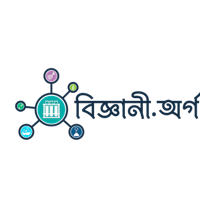
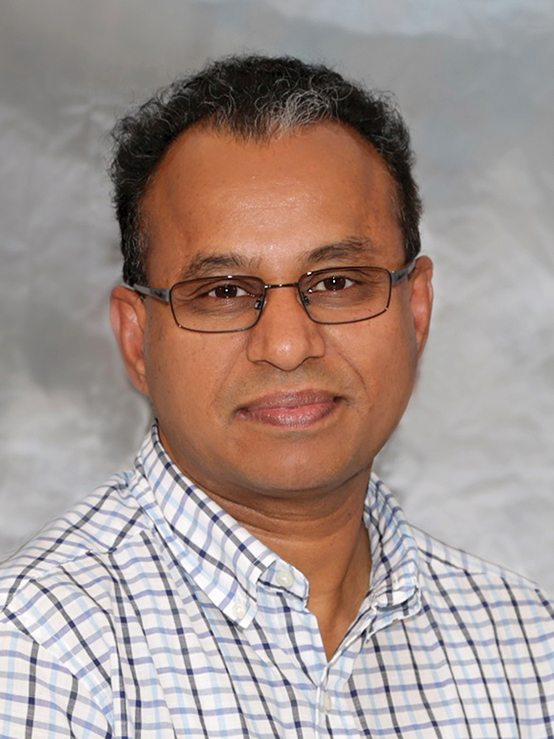

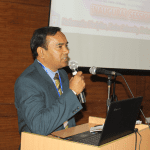

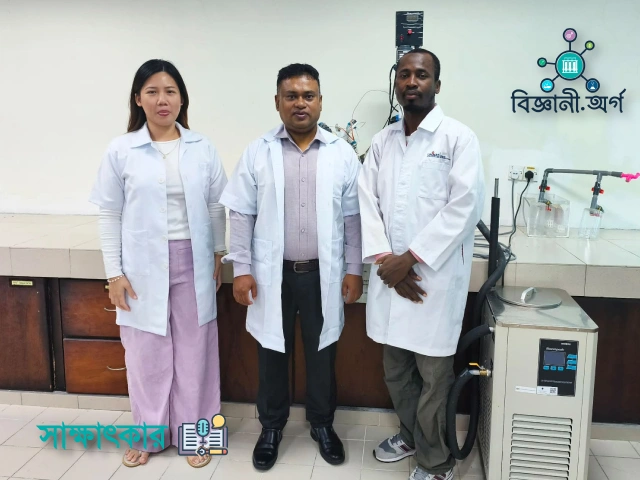
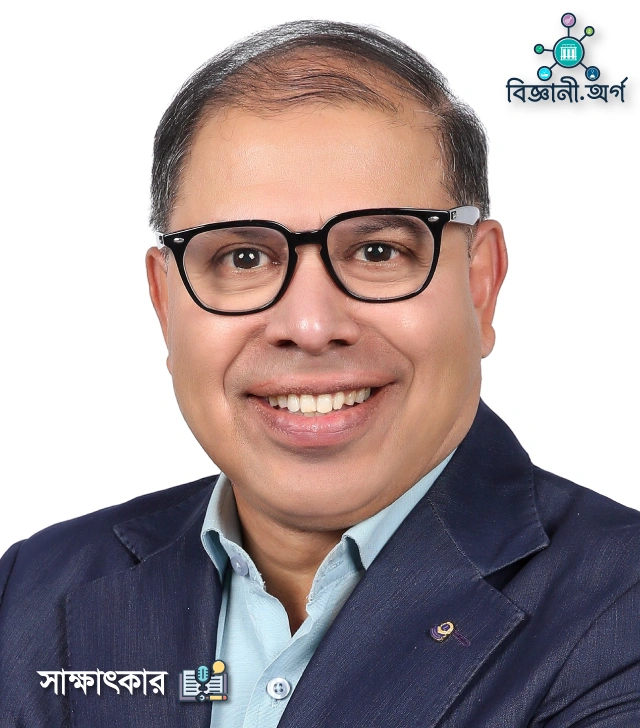
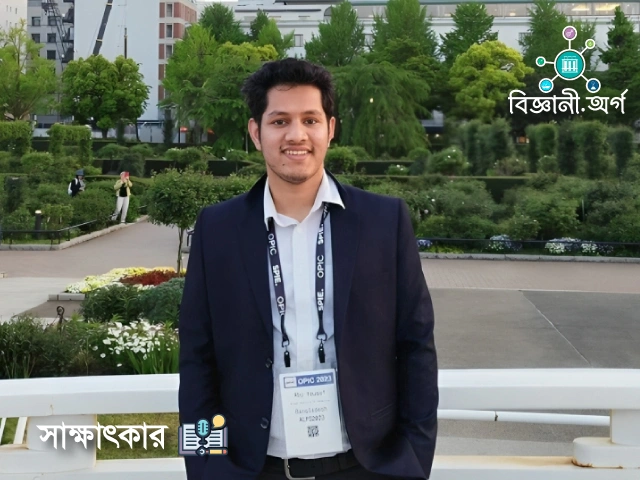
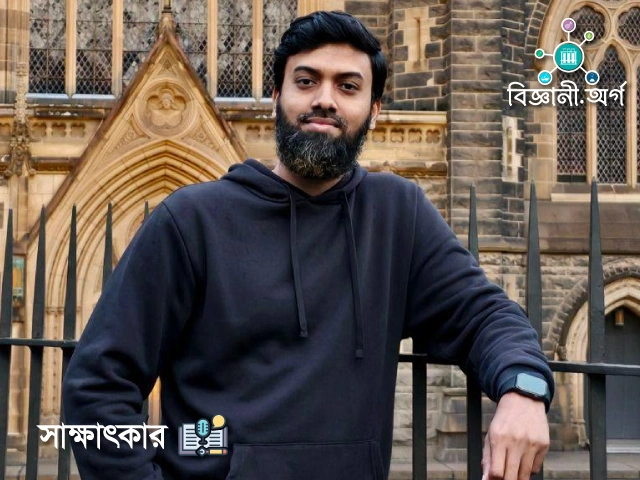

Leave a comment